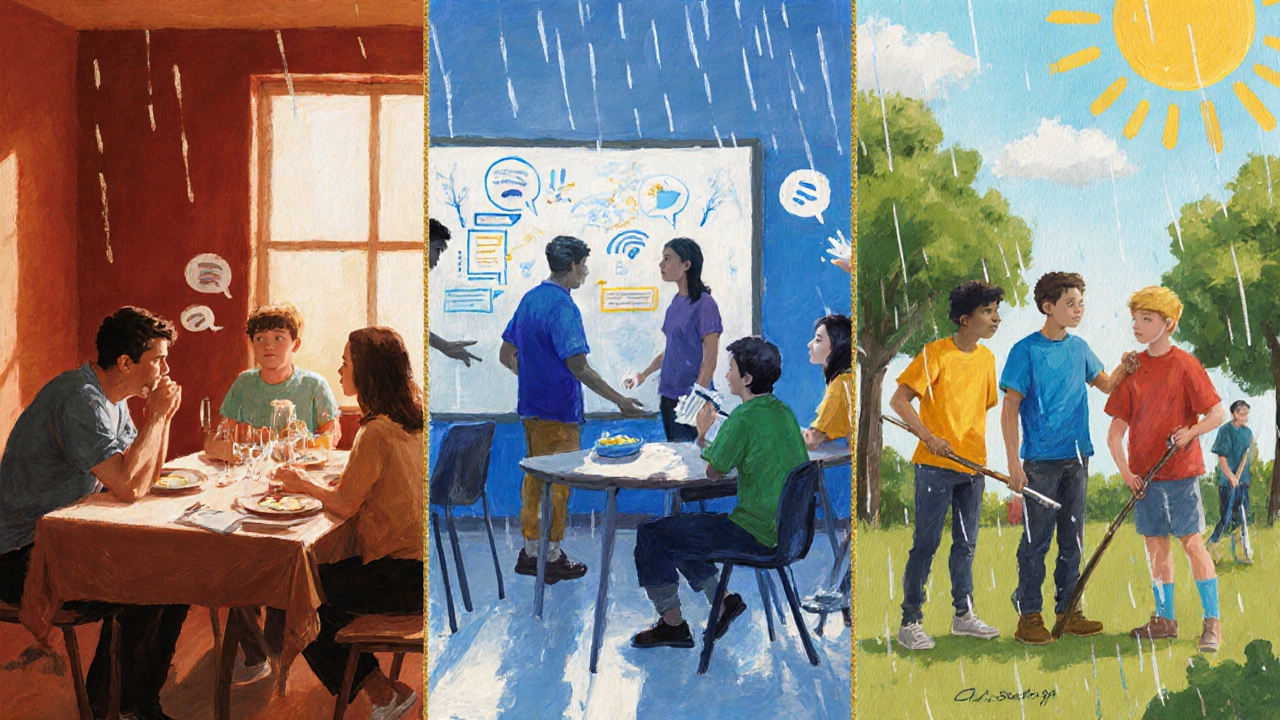Soft Skills Assessment Quiz
Test your soft skills awareness with this quick 5-minute assessment. Based on your answers, you'll receive personalized insights about your strongest soft skills and areas for growth. All responses are confidential and used solely for your personal development.
Instructions
Please select the option that most closely describes how you typically behave in professional situations. There are no right or wrong answers - just your honest self-assessment.
Your Soft Skills Assessment
Based on your responses, we've identified your strongest soft skills and areas for growth. These insights can help you focus your development efforts.
What exactly are soft skills?
When people talk about Soft skills are personal attributes that enable effective interaction, collaboration, and problem‑solving in the workplace and beyond, they’re usually referring to the invisible strengths that help you get along with others, adapt to change, and make good decisions. Unlike technical know‑how, soft skills aren’t measured by a coding test or a certification; they’re shown in everyday conversations, meetings, and even a quick email reply.
Why soft skills matter more than ever
Automation, AI, and remote work have reshaped how we do our jobs. Machines can crunch numbers faster than any human, but they still need people to interpret results, negotiate outcomes, and keep teams motivated. A 2024 LinkedIn report found that 92% of hiring managers rank soft skills as equal or more important than hard skills when evaluating candidates. In other words, mastering those personal abilities can be the deciding factor between landing a dream role and watching it slip away.
Core soft‑skill categories
While the list can get long, most experts break soft skills down into a handful of core categories. Below are the most common ones, each with a quick definition and a real‑world example.
- Communication the process of exchanging information, ideas, and feelings effectively - Whether you’re presenting a project update or chatting in a Slack channel, clear communication prevents misunderstandings and speeds up decision‑making.
- Teamwork the ability to work cooperatively with others toward a shared goal - Think of a product launch where designers, developers, and marketers must align their timelines; strong teamwork keeps the ship on course.
- Emotional intelligence the skill of recognizing, understanding, and managing one’s own emotions and those of others - A manager who can sense when a team member is stressed can intervene before a deadline becomes a crisis.
- Problem‑solving the capacity to identify issues, generate solutions, and implement the best option - When a client’s requirements change mid‑project, a quick problem‑solver re‑prioritizes tasks to keep delivery on track.
- Adaptability the willingness and ability to adjust to new conditions, tasks, or environments - Remote workers who can shift between video calls, async chats, and occasional office days demonstrate high adaptability.
- Leadership the talent for guiding, motivating, and influencing a group toward a common objective - Even without a formal title, a senior developer who mentors juniors shows leadership.
- Time management the practice of planning and controlling how much time to spend on specific activities - Using a Pomodoro timer to finish a report before a meeting is a classic time‑management move.
How to spot your own soft‑skill strengths
Self‑awareness is the first step. Try these quick methods:
- Ask for 360‑degree feedback - request honest input from a manager, a peer, and a direct report.
- Review past performance reviews - note recurring praise (e.g., “great communicator”) or recurring critiques (e.g., “needs to be more flexible”).
- Take a reputable soft‑skill assessment - tools like the VIA Survey or the Emotional Quotient Inventory give concrete scores.
- Reflect after key interactions - ask yourself what went well and what felt awkward.
Write down the patterns you see. If several sources highlight “communication,” that’s a strength you can leverage. If “adaptability” appears as a weak point, you know where to focus.
Practical ways to develop each skill
Improving soft skills isn’t a one‑off workshop; it’s a habit‑building process. Below are actionable habits you can start today.
- Communication: Record yourself during a mock presentation, then watch for filler words or rushed pacing. Replace them with pauses.
- Teamwork: Volunteer to lead a small cross‑functional task force. Coordination experience sharpens collaborative instincts.
- Emotional intelligence: Keep a daily emotion log. Note triggers, how you responded, and how you could have acted differently.
- Problem‑solving: Use the “5 Whys” technique on any minor issue. Digging deeper trains analytical thinking.
- Adaptability: Switch up your routine weekly - try a new productivity app or work from a different location.
- Leadership: Mentor a junior colleague for a month. Coaching forces you to articulate expectations clearly.
- Time management: Adopt the Eisenhower Matrix to prioritize tasks by urgency and importance.
Soft skills vs. hard skills - a side‑by‑side look
| Aspect | Soft Skills | Hard Skills |
|---|---|---|
| Definition | Personal attributes that help you work with others | Specific technical knowledge or abilities |
| Typical Examples | Communication, teamwork, emotional intelligence | Python programming, financial modeling, graphic design |
| Measurement | Feedback, observation, behavioral assessments | Certifications, exams, project deliverables |
| Learning Path | Practice, coaching, reflection | Courses, textbooks, hands‑on labs |
| Impact on Career | Facilitates promotion, leadership roles, team trust | Qualifies you for specific jobs, technical tasks |
Both sets are essential, but they complement each other. A data analyst who can code in R (hard skill) and also explain insights to non‑technical stakeholders (soft skill) becomes far more valuable.
Putting soft skills to work in daily life
It’s easy to think soft skills only belong in the office, but they show up everywhere.
- At home: Active listening during family dinner reduces conflict.
- In school: Group projects thrive when members practice empathy and clear communication.
- In volunteering: Coordinating a community clean‑up requires both leadership and adaptability.
Whenever you notice a relationship or a process breaking down, ask yourself which soft skill is missing. Then act deliberately to fill that gap.

Common pitfalls and how to avoid them
Even seasoned professionals slip up. Here are three frequent mistakes and quick fixes.
- Thinking soft skills can’t be measured - Use rubrics or peer‑review scores to track progress.
- Over‑promising and under‑delivering - Set realistic expectations; reliability builds trust.
- Relying on “natural talent” alone - Treat each skill like a muscle; schedule regular workouts (practice sessions).
Quick checklist - are you building the right soft skills?
- Do I listen more than I speak in meetings?
- Can I explain a complex idea in two sentences?
- When a plan changes, do I stay calm and propose alternatives?
- Do I regularly ask for feedback and act on it?
- Am I able to prioritize tasks without feeling overwhelmed?
If you answered “yes” to most, you’re on the right track. If not, pick one bullet and work on it for the next week.
Frequently Asked Questions
What’s the difference between soft skills and interpersonal skills?
Interpersonal skills are a subset of soft skills focused specifically on how you interact with other people-think communication, empathy, and conflict resolution. Soft skills also include broader traits like time management and adaptability.
Can soft skills be taught in a classroom?
Yes. While you can’t program empathy like a coding language, workshops, role‑plays, and coaching can dramatically improve them. Real‑world practice is still essential.
How do employers assess soft skills during hiring?
Many use behavioral interview questions (“Tell me about a time you dealt with a difficult client”), situational assessments, or group exercises. Some companies also rely on reference checks and personality tests.
Is there a universal list of soft skills?
No single list covers every industry, but most frameworks include communication, teamwork, emotional intelligence, problem‑solving, adaptability, leadership, and time management.
What’s the fastest way to improve my soft skills?
Pick one skill, set a weekly goal, and get immediate feedback. For example, practice active listening for three meetings each week and ask a colleague how you sounded.

